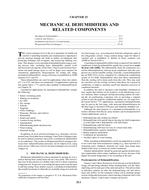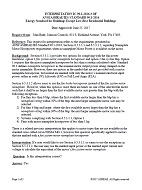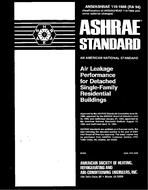The selection of the proper system for environmental control in the large multistory commercial office building requires analysis and evaluation of a number of disparate factors. This discussion reviews these factors with particular emphasis on variable air volume systems.
The recent increase in the acceptance of variable air volume (VAV) systems largely results from a number of technological breakthroughs in air distribution devices, unit controls, and air moving equipment. These advances have made wide variations in supply air quantities possible at an air diffuser with little or no sacrifice on the sensation of comfort within the space as determined by temperature, humidity and air motion. Furthermore, the increased application of VAV systems is a recognition of the inherent energy savings achieved by controlling temperature in a room by throttling air rather than adding heat, as would be true in any other all-air system, be it a terminal reheat or a dual duct system. The reduction in operating fan horsepower, through the use of variable inlet vanes (the most widely applied means of reducing system air flow), is a concomitant saving that adds to the system’s appeal.
The conclusion that the VAV system is the proper selection for a building is, however, an extrapolation of a few engineering facts that may or may not bear the scrutiny of detailed engineering analysis. Furthermore, the exclusive comparison of a VAV system to a terminal reheat system, as is frequently done, ignores the existence of induction systems, fan coil systems and a multiplicity of other systems with application, especially on building exteriors. This does not mean VAV approaches are incorrect but simply that the efficiency of the control does not assure the best possible overall solution.
Citation: Symposium, ASHRAE Transactions, Volume 80, Part 1, Los Angeles, CA
Product Details
- Published:
- 1974
- Number of Pages:
- 6
- File Size:
- 1 file , 610 KB
- Product Code(s):
- D-LA-74-11-2


